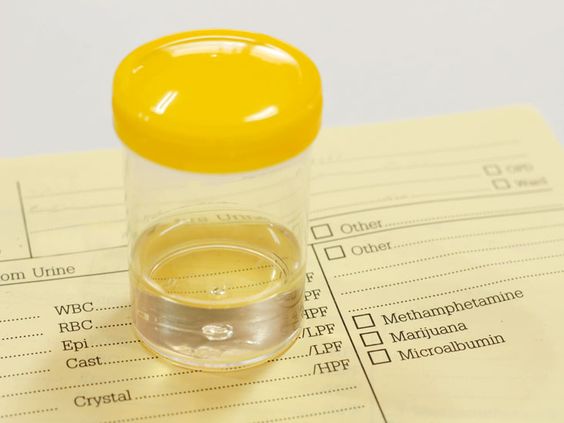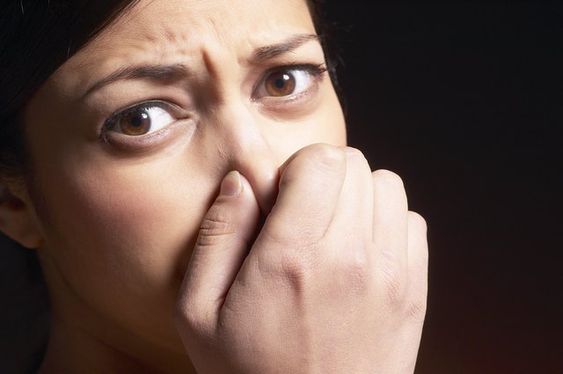Foul Smelling Urine Cancer: Causes of foul-smelling urine
Foul-smelling urine can be caused by various factors, and while it can sometimes be associated with health issues, it is not necessarily a direct sign of cancer. Foul-smelling urine is more commonly linked to urinary tract infections (UTIs), dehydration, certain foods or medications, or even dietary habits. Read about How Does Cancer Man Test You
However, it’s essential to be aware that unusual changes in urine odor, color, or consistency should not be ignored, especially if they persist or are accompanied by other concerning symptoms.
Foul-smelling urine can be an alarming symptom, leading many to wonder about its potential links to serious health conditions like cancer. While the scent of urine can be affected by various factors, understanding the underlying causes and when to seek medical attention is crucial. This article delves deep into the causes of foul-smelling urine, its association with cancer symptoms, and other medical conditions that could be responsible. Discover about How Fast Does Bile Duct Cancer Spread
Causes of Foul-Smelling Urine
Foul-smelling urine can result from numerous factors ranging from dietary choices to serious health conditions. Here are the most common causes:
Dehydration
When the body lacks sufficient water, urine becomes concentrated, leading to a stronger, unpleasant odor. Staying hydrated is essential to maintain normal urine odor.
Dietary Habits
Certain foods and drinks can alter the smell of urine. Common culprits include asparagus, coffee, fish, and spicy foods. These changes are typically temporary and harmless.
Urinary Tract Infections (UTIs)
UTIs are a common cause of foul-smelling urine. Bacterial overgrowth in the urinary tract can lead to a strong, unpleasant odor, often accompanied by frequent and painful urination, cloudy urine, and pelvic pain.
Medications and Supplements
Some medications and supplements can change urine odor. Antibiotics like sulfonamides, diabetes medications, chemotherapy drugs, and over-the-counter vitamins B and D are known to cause this symptom.
Also, read the Article: Can Mold Cause Cancer
Medical Conditions

Several medical conditions can cause foul-smelling urine, including:
- Diabetes: Uncontrolled diabetes can lead to sweet-smelling urine due to excess glucose.
- Bacterial Vaginosis (BV): This vaginal infection can cause a fishy smell in vaginal discharge and sometimes urine if dehydration is present.
- Trichomoniasis: A sexually transmitted infection that can alter the scent of vaginal discharge, affecting urine odor.
Urine Odor and Cancer Symptoms
While foul-smelling urine is not a definitive sign of cancer, it can sometimes be associated with more advanced stages of certain cancers. Understanding the possible links between urine odor and cancer symptoms is essential for early detection and treatment.
Bladder Cancer
Bladder cancer can cause changes in urine odor, especially in advanced stages. Other symptoms include blood in the urine (hematuria), frequent urination, and pain during urination. It’s crucial to seek medical advice if these symptoms persist.
Kidney Cancer
Kidney cancer can also affect urine odor. Symptoms may include flank pain, unintentional weight loss, and fatigue. Foul-smelling urine is one of many potential signs of this condition.
Cancer-Related Changes in Urine Smell
Although human noses cannot detect cancer-specific odors, research has shown that certain cancers emit distinct smells. These changes are often detected through advanced methods like trained dogs or electronic noses.
Medical Conditions Causing Smelly Urine
Apart from cancer, several other medical conditions can cause foul-smelling urine. Understanding these can help differentiate between benign and serious causes.
Diabetes and Diabetic Ketoacidosis
Improperly managed diabetes can lead to sweet-smelling urine. Diabetic ketoacidosis, a severe complication of diabetes, can also cause a distinct odor in urine due to the presence of ketones.
Urinary Tract Infections
UTIs are a leading cause of foul-smelling urine, characterized by bacterial growth in the urinary tract. Symptoms include painful urination, cloudy urine, and pelvic pain.
Bacterial Vaginosis and Trichomoniasis
These vaginal infections can indirectly cause foul-smelling urine due to changes in vaginal discharge. It’s essential to seek medical treatment for these infections to prevent complications.
Diagnosis of Smelly Urine
Diagnosing the cause of foul-smelling urine involves several steps, including medical history, physical examination, and diagnostic tests.
Urinalysis
A simple urinalysis can provide valuable information about urine composition, helping identify infections, dehydration, or other underlying issues.
Imaging Tests
If cancer is suspected, imaging tests like CT scans or ultrasounds may be performed to visualize the urinary tract and detect abnormalities.
Foul-Smelling Urine and Bladder Cancer

Bladder cancer can cause foul-smelling urine, especially in advanced stages. Recognizing the signs and seeking timely medical advice is crucial for early detection and treatment.
Symptoms of Bladder Cancer
- Blood in the urine (hematuria)
- Frequent urination
- Pain during urination
- Pelvic pain
Diagnosis and Treatment
Diagnosing bladder cancer typically involves imaging tests and cystoscopy. Treatment options may include surgery, chemotherapy, or radiation therapy, depending on the cancer stage.
Cancer Affecting Urine Odor
Certain cancers can affect urine odor, although these changes are often subtle and not detectable by the human nose. Research into noninvasive diagnostic methods is ongoing.
Research on Cancer Detection
Studies have found that dogs can be trained to detect specific cancer odors in urine, breath, and other biological samples. Electronic nose technology is also being developed to identify cancer-specific volatile organic compounds.
Signs of Cancer in Urine
While foul-smelling urine alone is not a definitive sign of cancer, it can be a symptom when combined with other changes. Here are key signs to watch for:
- Blood in the urine
- Persistent foul odor
- Unexplained weight loss
- Pain during urination
- Fatigue
Urine Smell and Health Conditions
Various health conditions can alter urine smell, from benign dietary changes to serious medical issues. It’s essential to understand these conditions for proper diagnosis and treatment.
Dehydration
Ensuring adequate hydration can prevent foul-smelling urine caused by dehydration.
Diabetes Management
Proper diabetes management is crucial to prevent complications like sweet-smelling urine due to high glucose levels.
Infection Prevention
Practicing good hygiene and seeking prompt treatment for infections can help prevent foul-smelling urine.
Is Foul-Smelling Urine a Sign of Bladder Cancer?
Foul-smelling urine can be a sign of bladder cancer, particularly in advanced stages. However, it’s not a definitive symptom and can result from various other causes.
When to Seek Medical Advice
If you notice persistent changes in urine odor, especially when accompanied by other concerning symptoms like blood in the urine or pain, consult a healthcare professional for evaluation.
Conclusion
Foul-smelling urine can be a concerning symptom with various potential causes, including dehydration, dietary habits, infections, and medical conditions like diabetes and cancer. While it is not a definitive sign of cancer, it’s crucial to be aware of other accompanying symptoms and seek medical advice when necessary. Early detection and treatment are vital for the best outcomes in managing any underlying health conditions.
FAQs
Is foul-smelling urine always a sign of cancer? No, foul-smelling urine can have various causes, including dehydration, diet, infections, and medications. Cancer is just one potential cause, typically in more advanced stages.
Can diet alone cause foul-smelling urine? Yes, certain foods and beverages can temporarily change the smell of urine. Common examples include asparagus, coffee, and fish.
What are the other common symptoms of bladder cancer? Other symptoms may include blood in the urine, frequent urination, and pain during urination.
How is kidney cancer diagnosed? Diagnosis often involves imaging tests like CT scans or ultrasounds.
What should I do if I suspect a problem with my urine? If you have concerns about your urine, especially if the odor persists or is accompanied by other symptoms, consult a healthcare professional for guidance.








